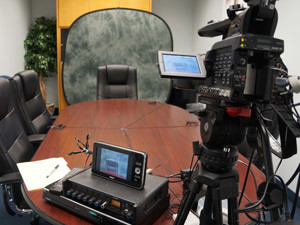The Relevance of Lawful Video Depositions in Modern Legal Services: What You Should Know
Lawful video clip depositions have become essential in today's lawful landscape. They supply a multidimensional view of witness testimonies that typical records just can not match. By capturing both non-verbal and verbal communication, these depositions boost the general understanding of a witness's integrity. Nevertheless, the effectiveness of video clip depositions hinges on various variables, including conformity with lawful standards and ideal methods (legal video depositions). Exploring these components reveals their real significance in modern lawful services
What Are Lawful Video Depositions?
Lawful video clip depositions act as a vital tool in the lawsuits procedure. They involve taping witness testimonies in a video layout, capturing both verbal and non-verbal interaction. This method enables lawyers to record the disposition, expressions, and responses of witnesses, giving a richer context for the testimony. Usually performed in a regulated setting, these depositions are led by lawyers that ask questions while a stenotype reporter documents the discussion. The resulting video clip can be crucial for trial preparation, as it allows legal representatives to analyze the reliability of witnesses and fine-tune their methods. In addition, lawful video clip depositions can be made use of in various legal contexts, ranging from civil disputes to criminal cases. The visual and auditory elements of video depositions enhance the presentation of evidence, making it an important component in the modern legal landscape. Overall, they contribute considerably to the efficiency and effectiveness of legal process.

Benefits of Video Clip Depositions Over Standard Techniques
Video clip depositions provide various advantages compared to standard approaches of taking witness testaments. One considerable advantage is the ability to catch both aesthetic and audio components, supplying an extra complete document of the witness's declarations. This twin style enhances clearness and enables lawyers to reference specific subtleties throughout trial preparation. In addition, video clip depositions help with remote participation, making it easier for witnesses that may be unavailable for in-person looks because of geographical constraints or wellness issues.Moreover, video clip depositions can speed up the total deposition procedure, decreasing the moment and expenses related to traveling and logistics. They likewise boost availability, as tape-recorded depositions can be conveniently shared amongst legal groups and referenced at any time. This ease contributes to far better situation management and prep work. Overall, video clip depositions represent a contemporary, efficient technique to gathering witness statements, aligning with the progressing needs of the legal career.
The Function of Body Movement and Tone in Testimonies

In legal video depositions, body movement and tone play essential roles in communicating a witness's credibility and credibility. Nonverbal hints can give insights into a witness's emotional state, affecting just how their testament is perceived. Comprehending the effect of these aspects is crucial for attorneys and jurors alike when assessing the dependability of a testament.
Nonverbal Interaction Insights
While spoken interaction is often highlighted in legal statements, nonverbal hints such as body movement and tone play a crucial role in conveying reliability and emotion. Onlookers of depositions may note that a witness's position, gestures, and faces can significantly influence perceptions of reliability. Consistent eye contact might signify self-confidence, while preventing look could suggest deceit or pain. The tone of voice-- its pitch, quantity, and pace-- can impart sensations of genuineness or unpredictability. Legal professionals must be in harmony with these nonverbal signals, as they usually give important context that matches spoken words. Comprehending these subtleties can boost the efficiency of depositions and influence the end result of legal proceedings.
Psychological Tone Effect
The emotional tone shared during lawful statements greatly affects how a witness is viewed. Body language, vocal inflections, and faces play crucial roles fit the narrative of a testament. A witness displaying self-confidence through constant eye contact and a calm tone can instill a feeling of reliability and engagement. On the other hand, signs of stress and anxiety, such as fidgeting or an unsteady voice, may bring about suspicion concerning their account. The subtleties of psychological expression can affect the interpretation of truths, making it crucial for attorneys to recognize these hints. In video clip depositions, the auditory and aesthetic parts combine, highlighting the value of emotional tone in conveying sincerity and reliability within the lawful process.
Trustworthiness and Reliability
A vital consider developing reputation and trustworthiness during statements depends on the witness's body movement and intonation. Viewers frequently depend on non-verbal hints-- such as eye get in touch with, pose, and motions-- to analyze a witness's genuineness. For example, a witness who maintains eye contact and displays open body language may be perceived as more trusted and straightforward than one that stays clear of eye call or shows up blocked. Furthermore, tone of voice plays a crucial duty; a constant, tranquil tone can strengthen the trustworthiness of the statement, while fluctuations in pitch or quantity might increase doubts. Ultimately, the mix of body language and singing tone significantly influences how a witness's statements are gotten and interpreted in a lawful context.
Finest Practices for Performing Video Depositions
Conducting video clip depositions needs mindful preparation and execution to assure a efficient and clear presentation of testament. It is essential to select a peaceful, well-lit area to lessen diversions and safe ideal video clip high quality. The tools ought to be tested in breakthrough, consisting of electronic cameras, microphones, and lights, to prevent technical problems during the deposition.Next, parties entailed must assess the style and treatments beforehand, seeing to it that everybody comprehends their duties. The deponent must be informed on the process, consisting of just how to react plainly and concisely.Additionally, keeping a professional attitude throughout the session is essential. This consists of avoiding talking over each other and confirming that all questions are directed appropriately. Finally, it is essential to tape the deposition in a style that permits easy playback and evaluation, preserving the integrity of the testimony for future usage.
Legal Considerations and Compliance Issues
Exactly how do lawful factors to consider and compliance issues affect the performance of video depositions? Attorneys need to navigate a complex landscape of policies, link making certain that video clip depositions comply with jurisdictional policies and criteria. Compliance with regulations concerning personal privacy, permission, and recording techniques is necessary. Obtaining explicit consent from all events entailed is essential to prevent lawful repercussions.Additionally, the admissibility of video check my blog proof in court can hinge on conformity with step-by-step requirements. Making certain that the tools utilized meets technological standards is also vital, as poor top quality can undermine the deposition's reliability.Moreover, attorneys should recognize any kind of particular state regulations that control video clip depositions, as these can differ substantially. Failure to address these considerations can not just endanger the honesty of the deposition but also impact the overall case strategy, eventually influencing the customer's lawful end results.
How Video Clip Depositions Effect Jury Understanding
While video depositions can act as powerful tools in lawful process, their influence on court assumption is significant. The auditory and aesthetic aspects of video recordings offer jurors with an extra detailed understanding of witness attitude, credibility, and psychological responses. This multimedia approach can improve the jurors' capacity to examine the integrity of statement contrasted to traditional text-based transcripts.Moreover, video clip depositions permit jurors to observe body language, intonation, and faces, every one of which can influence their interpretation of the witness's statements. The presence of a witness on display can humanize them, fostering empathy and connection, which might sway jurors' point of views. On the other hand, a witness who shows up evasive or untrustworthy on video may cause negative assumptions that influence a court's choice. Eventually, the vibrant nature of video depositions plays an essential function fit just how jurors translate evidence and reach their decisions.
The Future of Video Clip Depositions in Legal Method
As developments in technology proceed to reshape the lawful landscape, the future of video clip depositions is poised for substantial evolution. Technologies such as synthetic knowledge, virtual truth, and improved video clip conferencing tools are expected to improve the deposition procedure and enhance ease of access. Lawyers may make use of AI-driven analytics to assess witness reliability and instance strength a lot more effectively.Moreover, the combination of online truth might enable courts to experience immersive simulations of depositions, giving much deeper context and understanding. Furthermore, the fad towards remote depositions is most likely to continue, providing better versatility for attorneys and customers alike.As remote work becomes progressively normalized, video depositions will likely become common practice, lowering costs and time constraints connected with typical methods. Generally, try this these technological developments promise to enhance the effectiveness, effectiveness, and ease of access of video depositions in lawful technique, ultimately changing how lawful experts plan for test.
Often Asked Concerns
Exactly How Much Do Lawful Video Clip Depositions Generally Expense?

Can Video Clip Depositions Be Used in Any Type Of Type of Case?
Video clip depositions can be used in numerous kinds of situations, consisting of civil, criminal, and household regulation. Their versatility permits lawyers to present witness statements successfully, adapting to the particular demands of various lawful situations.
What Devices Is Required for a Video Deposition?
To perform a video clip deposition, vital equipment includes a top notch camera, microphone, lights, and a trusted recording gadget. Furthermore, a computer with editing and enhancing software application may be needed for post-production and formatting the last video.
For how long Does a Regular Video Deposition Last?
A common video clip deposition lasts between two to four hours, depending on the complexity of the situation and the number of questions presented. Extensive sessions may occur, however breaks are generally integrated for participant convenience.

Are Video Clip Depositions Admissible in Court?
Video clip depositions are typically acceptable in court, provided they stick to legal requirements and rules of proof. Their usage boosts clearness and protects witness statement, assisting in the judicial procedure throughout trials and hearings. Lawful video clip depositions have actually come to be important in today's legal landscape. In addition, lawful video clip depositions can be made use of in numerous lawful contexts, varying from civil disputes to criminal situations. Additionally, video depositions facilitate remote participation, making it easier for witnesses who may be not available for in-person appearances due to geographical constraints or wellness issues.Moreover, video clip depositions can expedite the general deposition process, reducing the time and expenses connected with travel and logistics. Guaranteeing that the tools made use of meets technical criteria is also essential, as bad top quality can undermine the deposition's reliability.Moreover, attorneys have to be mindful of any type of specific state legislations that govern video depositions, as these can vary significantly. Additionally, the pattern toward remote depositions is likely to linger, providing higher flexibility for customers and lawyers alike.As remote job ends up being increasingly normalized, video clip depositions will likely become typical practice, lowering costs and time constraints connected with standard approaches.